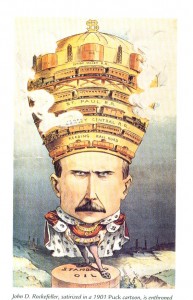I just spotted this review of The Revolt of the Masses by Greg Lukianoff.” Greg’s review has convinced me to order my own copy of The Revolt of the Masses.
Excerpts:
“The Revolt of the Public” explains that the shifts in media technologies that we believe accelerated American political polarization and played havoc with young people’s mental health were actually part of a much larger global transformation that Gurri calls “The Fifth Wave.” Essentially, the empowerment of vast multitudes of people to communicate directly with the world and with each other has genuinely transformed society. Unfortunately, in its current state, this media revolution has only been able to tear things down; institutions, ideas, and yes, even people (a.k.a. cancel culture). This idea is what Gurri calls “negation.”
. . . . Gurri shows how this manifested in the 2011 Arab Spring and how it has had ripple effects in Spain, Israel, and the American Occupy Wall Street movement. Gurri also argues that these movements generally were rich with targets: people, institutions, and ideas that needed to be torn down, but those same movements were often very hesitant to offer constructive solutions or realistic reforms. This hopeless point of view amounted to a kind of nihilism, according to Gurri—usually not the kind of nihilism of the philosophers, but a de facto nihilism in which nothing constructive is proposed to replace what needs to be torn down.
You can see this in American society in everything from “End the Fed,” to “abolish the police,” to cancel culture on both the right and the left, and to the absolute negation of all assumptions represented by the QAnon conspiracy.
One thing that must be said about the “crisis of authority” we find ourselves in due to the overwhelming power of negation is that very often what critics have discovered is that our existing “knowledge” was truly based on some pretty thin evidence, bad assumptions, and sometimes not much more than the pieties of some elites. Understanding the crisis of authority as only being wrongfully destructive of expertise is to miss that, frankly, we are often asking far too much of expertise and experts, and oversight itself has not been all that rigorous. Negation is indeed tearing things down that needed to be torn down; unfortunately, it seems to be taking everything else with it.


